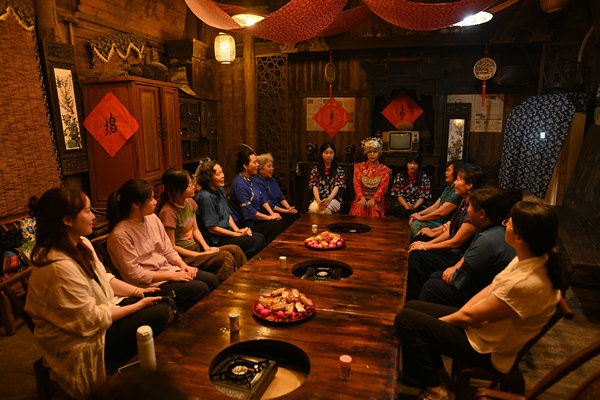

"Setting foot on the rich land of Jiangyong, I finally understood why so many nyushu songs celebrate nature," Rosie said.
Growing up in a small town between cities and rural areas, she described herself as "a bridge between the broader modern world and rural traditions".
"Women's inner worlds are incredibly powerful; when others connect with their hearts, there's a brightening effect," she said.
"Nyushu isn't about external confrontation. Instead, it celebrates the beauty of quiet communication among women."
For her exhibition, Rosie designed an installation where letters glimmer gently in a dark, quiet space, visible only as viewers draw near.
"Her work is both intensely personal to the quiet viewer and so universal that you could not detect the artist's nationality. ... Her work is confined neither to her time nor place but is eternal in its wisdom and beauty," said Philip Ward, fellow of the Royal Society of Art, reviewing Rosie's work.
From a confidential women's space, nyushu is certainly becoming a "global culture that belongs to the world", leading composer Tan Dun said in a UNESCO interview.